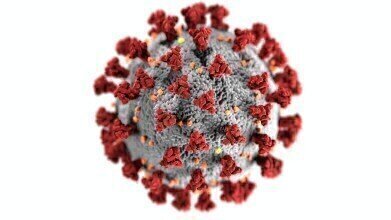-
 credit: pexels
credit: pexels
News
Covid-19 Method passes scrutiny as a Quick Test Alternative
Aug 22 2021
A three-way comparison study on a new reverse-transcription-free (RFT) testing method for Covid-19 carried out by researchers from the University of Birmingham, found that it was just as sensitive, but faster, than both PCR and LAMP tests currently being used in hospital settings. The findings on the Exponential Amplification Reaction (EXPAR) offered support for its potential use at UK entertainment venues, airport and shipping arrival terminals and in other areas where clinical testing laboratories are not available.
Professors Tim Dafforn from the School of Biosciences, and Jim Tucker from the School of Chemistry, worked with graduate student Jake Carter, and Professor Andrew Beggs from the Institute of Cancer and Genomic Sciences on the Birmingham COVID-19 test, called RTF-EXPAR, found to give a sample-to-signal time of under 10 minutes, even for low viral levels where current lateral flow tests are less effective.
“Both the reverse transcription and amplification steps slow down existing COVID assays that are based on nucleic acid detection, compared to antigen tests, such as lateral flow, which do not have these steps. However, while this makes lateral flow tests faster than those based on PCR and LAMP, in return they are typically less sensitive. An ideal test would be one that is both sufficiently sensitive and speedy – our test, called RTF-EXPAR, achieves this goal,” said Professor Tim Dafforn.
“EXPAR amplifies DNA at a single temperature, thus avoiding lengthy heating and cooling steps found in PCR. However, while LAMP also uses a single temperature for amplification, EXPAR is a simpler and a more direct process, in which much smaller strands are amplified. This makes EXPAR an even faster DNA amplification technique than not only PCR but also LAMP.”
The study revealed that the RTF-EXPAR method converts under 10 strands of RNA into billions of copies of DNA in under 10 minutes, using a one-pot assay that is compatible with more basic, benchtop equipment than that used with current testing methods.
RTF-EXPAR also demonstrated significant improvements over both PCR and LAMP-based assays on time to signal detection.
The assay has been tested at the Surgical Research Laboratory at the University of Birmingham. Professor Andrew Beggs, whose team conducted the testing, commented: “The testing used swabs containing a typical range of viral loads seen during the pandemic, and had a six-minute cut-off time. The analysis showed RTF-EXPAR’s sensitivity is equivalent to quantitative PCR testing, with a positive predictive value of 89%, and a negative predictive value of 93%. We expect to publish the full results of this testing in the near future.”
The team is now seeking commercial partners for rapid licensing, to make the RTF-EXPAR test as available as widely as possible.
Ultra-rapid Detection of SARS-CoV-2 RNA using a Reverse Transcription-Free Exponential Amplification Reaction, RTF-EXPAR, is published in the Proceedings of the National Academy of Sciences.
More information online
Digital Edition
Lab Asia Dec 2025
December 2025
Chromatography Articles- Cutting-edge sample preparation tools help laboratories to stay ahead of the curveMass Spectrometry & Spectroscopy Articles- Unlocking the complexity of metabolomics: Pushi...
View all digital editions
Events
Jan 21 2026 Tokyo, Japan
Jan 28 2026 Tokyo, Japan
Jan 29 2026 New Delhi, India
Feb 07 2026 Boston, MA, USA
Asia Pharma Expo/Asia Lab Expo
Feb 12 2026 Dhaka, Bangladesh


















